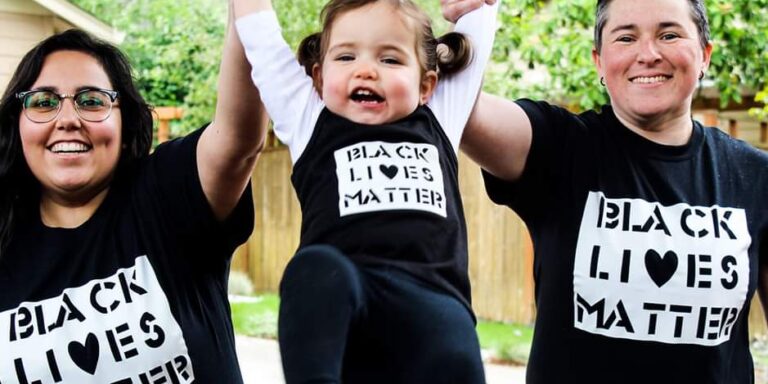How do you begin on a journey to anywhere when you don’t see yourself on the map? Where do our feelings of being welcomed as a contributor to a community come from?
By: Asia Wisecarver
We know from psychology that a sense of belonging and inclusion is an essential part of relating to the people around us, and it’s even more important when we are pursuing changes to community norms.
I’ve been thinking about the established norms within our culture as philanthropists, a culture that I agree with SVP needs reimagining. At SVP, we’ve started speaking the truth that philanthropy as an instrument of change is not making enough progress – and in part that’s because change is difficult due to our own blind spots when we aren’t collectively welcoming fresh perspectives and working collaboratively with their contributions in the mix. The building blocks of inclusion starts with diversity.
I’m passionate about increasing the intersectionality of philanthropy to include all races, genders, socio-economic levels. It’s important to recognize that true philanthropy encompasses much more than financial donations, and until we embrace everyone, we miss out on a significant number of valuable perspectives, talents and resources.
So, how can we create a culture that is truly inclusive? One that doesn’t just passively accept new contributors, but actively creates both safety and invitation for them to bring their unique mix of time, talents, treasure, ties, and testimony to the fight for a better world?
Starting your philanthropic journey can be overwhelming, especially if you don’t come from what is commonly perceived as the ‘traditional’ philanthropist background (i.e., white, wealthy, cis-gendered man). The norm in philanthropy that the only way to give back is through significant financial donations can be discouraging. Growing up, I rarely saw or heard stories highlighting or speaking about impact through philanthropy with people from my background so it was hard for me to believe that I could be considered a good fit for the exclusive and historically monolithic high-end spaces of philanthropic organizations. To be fully transparent, the thought of entering the door never occurred to me.

Coach Hurley meets my daughter, 25 years after he bought me my first brand-name high tops.
As a first-generation high school graduate who grew up in extreme poverty, I didn’t have the financial means to contribute to causes I cared about, but I’ve always dedicated my time to them and was often on the receiving end of others’ philanthropic efforts in my community. It was only recently while reflecting on these efforts in my community, and my personal experiences growing up, that I realized the importance of giving beyond treasures and the positive impacts I’ve learned can result when this happens.
One of my childhood close friends’ fathers and 8th grade basketball coach bought and gifted me my first pair of brand-name high tops so that my shoes could keep up with the wear and tear of my basketball journey. When I was in high school a close friend’s mom surprised me by selling hotdogs and burgers at our youth softball games to help raise money for me to go to a basketball camp. A number of folks in my community drove me to out of town doctors appointments I’d otherwise never be able to get to while my parents worked sometimes two jobs each while still struggling to make ends meet. A police officer in my town asked me to join him on a tour of elementary schools to share my testimony to younger children when I was in high school to help inspire them to be able to rise above their circumstances.
These are only a couple of examples of the many I can pull from my own experience that demonstrate impact beyond treasure on myself and within a community. What this reflection has taught me is that all of us can be and many of us are already philanthropists.
We don’t talk enough about how important transparency and honesty is when creating spaces that are inclusive of new or nontraditional voices. After I joined SVP, I was fortunate enough to be invited to join a committee and later the board. Right from the beginning, there was a remarkable level of directness about where I would fit in and how my position could make a valuable impact. Board members clearly articulated the value I would bring and I felt empowered and supported by this group of individuals who recognized me, and my potential. This group of folks articulated a new definition of a philanthropist and worked with me to find ways for me to engage and leverage the gifts in various forms that I could bring to this space. It was in this work and learning alongside SVP as they moved through their reimaging philanthropy and grant-making processes that I was able to begin to see myself as a philanthropist as well. The Reimagined Vision and SVP board made space for me. Their efforts to bring me into that space helped me see how I could fit and contribute to this vision.
Joining SVP first as a Partner and later as a Board member was a truly transformative experience that allowed me to shift my perspective and feel comfortable taking risks in this new space. There was a level of authenticity present when I heard my peers talk about “this is where we’ve been, this is where we are, and this is where we want to be.” That transparency and honesty gained my respect and made me feel like I could belong here as an LGBTQ, neurodiverse, androgynous presenting woman.

I am still in the early stages of what it means to see myself as a philanthropist and what that means for my learning journey in the philanthropic sector. Historically I had trouble seeing a through line from me to philanthropy. Now, I am excited by the opportunities before me to continue to grow and be innovative as it relates to making positive contributions in our world. I now know that through my efforts I am engaging in philanthropy and feel comfortable calling myself a philanthropist with a charge to keep working, learning and doing what I can to help create truly inclusive, brave spaces for others to belong and recognize themselves as philanthropists as well.
I feel lucky to have reached a point in my life where I am part of a community, in the state that I was born in, in a city that I love, that can influence change on a bigger level. It also brings me a lot of joy to be part of a community that is thinking and acting together with intention and innovation in mind.
At SVP, we are inviting everyone to contribute in ways that are meaningful for them, wherever they are on their philanthropic journey, and this seems to be a rarity in our current culture of philanthropy. I would love to see the ultimate goal for this sector to be true inclusion, a step even further beyond equity. In a place of true inclusion no one will need to ask or wonder if they’re invited to contribute to collective progress, they will already know and see themselves on the map as it relates to their own journeys.
